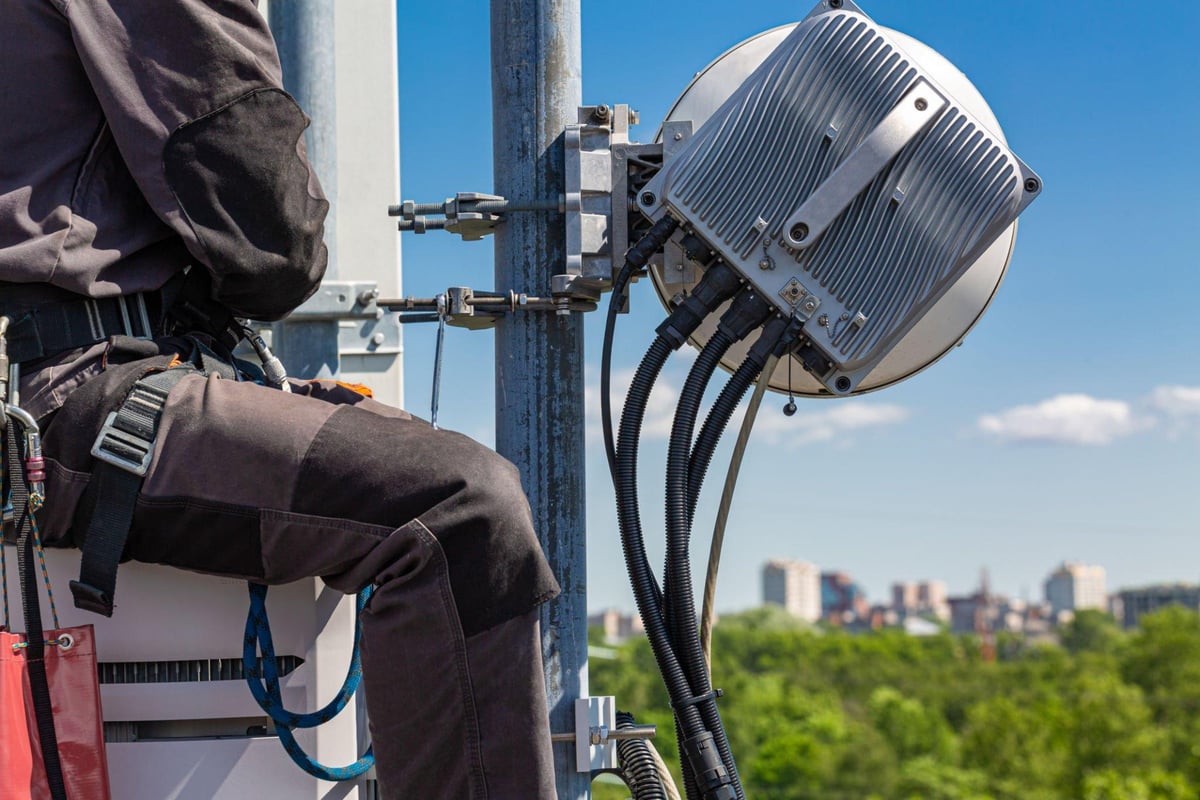
Financial aid (may be available)

No cost info

Financial aid (may be available)

Financial aid (may be available)
If you're interested in starting a career in the telecommunications industry, becoming a Tower Technician might just be the perfect fit for you. This blog post will guide you through what a Tower Technician is, the training requirements, what to look for in a class, and what to expect from the day-to-day class. It will also provide insights on the certification process, how to find related jobs, and what other classes you may consider after becoming a Tower Technician.

A Tower Technician, also known as a Tower Climber, is a professional who installs, maintains, and repairs cellular tower equipment. They work at great heights, ensuring that the communication infrastructure we use daily is running smoothly. These technicians play a crucial role in the telecommunication industry, maintaining the physical equipment necessary for cellular communication.
To become a Tower Technician, you need a high school diploma or GED. However, many employers prefer candidates who have completed a vocational training program in a field such as telecommunications, electrical engineering, or a related field. These training programs provide the technical skills necessary for this profession, including understanding the principles of cellular communication, learning about the different types of cell tower equipment, and gaining practical experience in tower climbing and equipment installation.
When looking for a Tower Technician class, there are several factors to consider:
Comprehensive Curriculum: The course should cover all aspects of the profession, from the basics of telecommunications to hands-on training in tower climbing and equipment installation.
Qualified Instructors: The instructors should have real-world experience in the industry and be able to provide practical insights and advice.
Safety Training: Safety is paramount in this profession. The course should include comprehensive safety training, including fall protection and rescue procedures.
Equipment Training: The course should provide hands-on training with the actual equipment used in the industry.
In a Tower Technician class, you can expect a mix of classroom lectures and practical, hands-on training. The classroom lectures will cover the theoretical aspects of the profession, including the principles of cellular communication and the different types of cell tower equipment. The practical training will involve actual tower climbing and equipment installation exercises, where you'll get to apply what you've learned in a real-world setting.
After completing your training, you'll need to obtain certification to work as a Tower Technician. This typically involves passing a written exam and a practical exam, where you'll demonstrate your ability to safely climb towers and install equipment. You may also need to obtain additional certifications based on the specific requirements of your employer or the state you plan to work in.
Once you've obtained your certification, you can start looking for jobs in the telecommunications industry. Many Tower Technicians work for cellular service providers, while others find employment with companies that specialize in cell tower installation and maintenance. Some Tower Technicians also work as independent contractors.
After becoming a Tower Technician, you might want to consider taking additional classes to further your career. For instance, you could take courses in advanced telecommunications technology, project management, or leadership. These can all help you advance in your career, potentially leading to roles such as Tower Foreman or Project Manager.
Safety is a paramount concern for Tower Technicians due to the nature of their work. Therefore, taking advanced safety classes can be beneficial for those in this field. These classes cover topics such as advanced fall protection, rescue procedures, and equipment safety checks.
Keeping up with the latest industry trends is important for any Tower Technician. This can involve attending seminars or classes on new technologies and practices in the telecommunications industry. This knowledge can help you stay competitive in the job market.
Networking can be beneficial for your career. Attending industry events or joining professional organizations can help you meet other professionals in the field, which can lead to job opportunities or collaborations.
Continuing education is important in the telecommunications industry. Taking additional classes or earning certifications can enhance your skills and make you a more attractive candidate for promotions or new job opportunities.
Becoming a Tower Technician can open the door to a rewarding career in the telecommunications industry. By choosing the right classes, earning your certification, and continuing to learn and grow in your profession, you can enjoy a fulfilling and successful career. Remember, the journey doesn't stop with just one class. Continual learning and professional development are key to advancing in this field.
With platforms like Dreambound, you can find vocational training programs that can help you start your journey as a Tower Technician. You can also explore other related careers such as a Radiology Technician, HVAC Technician, Certified Medication Aide in Pennsylvania. The opportunities are endless, and the choice is yours.
Dreambound has an extensive collection of guides that dive deep into how to get started in the field, tailored for various cities. For those based in different locations or planning to move, we recommend exploring our other guides.
Contemplating a change in your career path? Dreambound has written many comprehensive guides to aid you in making well-informed decisions.
Dreambound's platform allows prospective students to find the right educational program for them through searching, filtering, and connecting with our extensive selection of career & technical education partners.
Dreambound has over 70 programs across healthcare, technology, business, and industrial trades. This includes programs such as Medical Billing, Cybersecurity, and welding.
Some of our schools offer financial aid for those who qualify. Many others offer payment plans, where you can pay the cost of class over time.
Yes, Dreambound offers many online programs. On Dreambound's search, you can filter by online, in-person, and hybrid (part online, part in-person).
Dreambound is completely free for you to use! We are supported by schools and organizations who pay to advertise on our website, so we can offer all of our career resources for free.